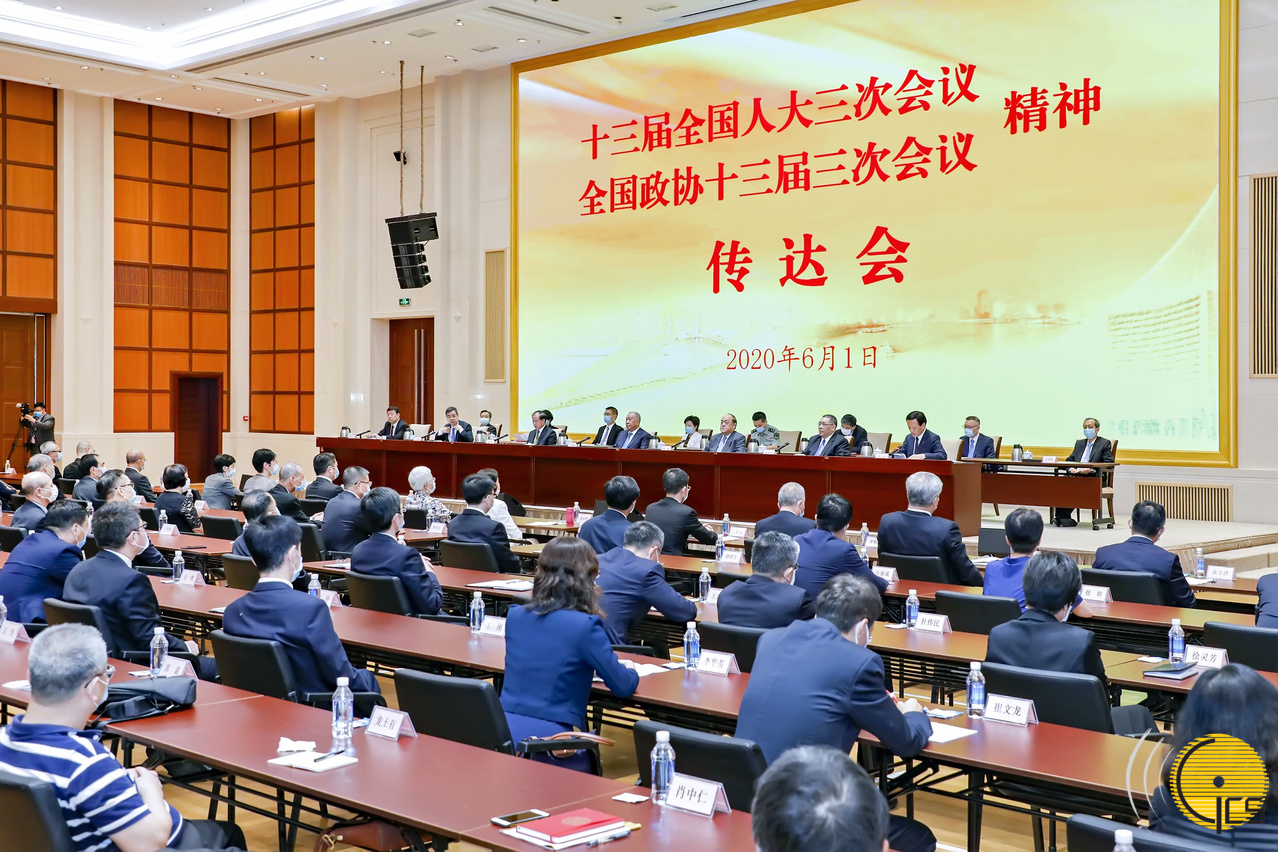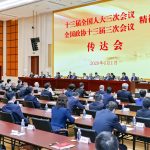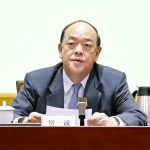 The Chief Executive, Mr Ho Iat Seng, attends a briefing session regarding new policies and aspirations set out in the "Two Sessions".
The Chief Executive, Mr Ho Iat Seng, attends a briefing session regarding new policies and aspirations set out in the "Two Sessions".
The Chief Executive, Mr Ho Iat Seng, shared with Government officials in a briefing session five points of understanding from the newly-concluded “Two Sessions” in Beijing.
Mr Ho additionally underlined national security was a key premise for a nation’s survival and development. He added that safeguarding national security was a core quality of the “One country, two systems” principle.
The Chief Executive shared his insights on Monday (1 June) during a briefing session regarding new policies and aspirations that had been set out in the “Two Sessions” – the recently-concluded meetings in Beijing of respectively the National People's Congress (NPC) and the Chinese People's Political Consultative Conference (CPPCC).
The first point outlined by the Chief Executive was to adhere to the spirit of the “Two Sessions” regarding the advancement of “One country, two systems” with Macao characteristics. During this year’s “Two Sessions”, several state leaders had highlighted the importance of implementation of the “One country, two systems” principle, Mr Ho stated.
Mr Ho urged attendees at the Monday briefing session to understand the messages from the “Two Sessions” in the context of the aspirations and directives for Macao laid out in December by President Xi Jinping, which aimed to advance the city’s overall development.
The second point of understanding from the “Two Sessions” was to press ahead with epidemic-control work while boosting economic development, to support local small and medium-sized enterprises (SMEs), to ensure employment, to enhance livelihoods, and to stabilise socio-economic activity.
The third point from the “Two Sessions”, mentioned during Monday’s briefing, was to integrate Macao in an active way within national development, while at the same time forging advances in relation to the Guangdong-Macao Intensive Cooperation Zone planned on Hengqin island. Macao’s involvement in the Zone was a primary step regarding Macao’s engagement in the promotion of the development of the Guangdong-Hong Kong-Macao Greater Bay Area, as well as a significant step toward Macao playing a more active role in national development, Mr Ho stated.
Mr Ho’s fourth point from the “Two Sessions” shared with officials during the briefing session, concerned the safeguarding of national security and work on integration, in order to ensure Macao’s stability. Macao would continue cooperation with neighbouring cities regarding establishment of a mechanism for the prevention of foreign intervention.
The fifth point was to step up effort regarding youth affairs, so as to ensure continued implementation of the “One country, two systems” principle by different generations. The Chief Executive pointed out that the Government would promote further exchange programmes between Macao young people and those from the mainland, thereby assisting Macao young people to find opportunities on the mainland.
Vice Chairman of the National Committee of the Chinese People's Political Consultative Conference, Mr Ho Hau Wah, also delivered a speech at Monday’s briefing session. Mr Ho said unity was at the core of Macao’s effort to overcome challenges in economic development following the novel coronavirus pandemic.
The Director of the Liaison Office of the Central People’s Government in the Macao SAR, Mr Fu Ziying, said in his speech at the event it was necessary to have: steadfast confidence in Macao’s prosperity and to turn a crisis into an opportunity; to deepen knowledge within the community regarding national security; and to strengthen effort regarding youth affairs policy.



